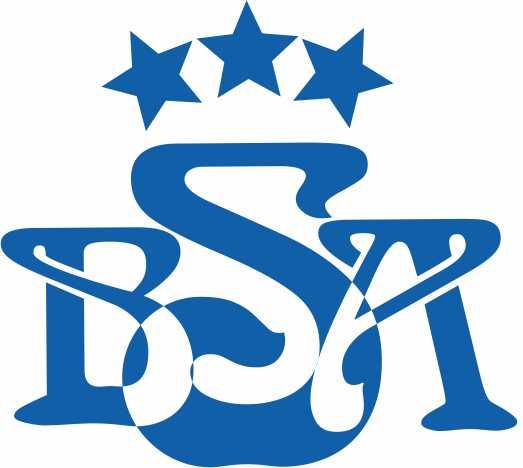The Centre for Foreign Language Learning and ECL Certification operates within the Baltic International Academy Professional Bachelor's programme “Translation and Interpreting” (Baltic International Academy Foreign Languages and ECL Certification Centre — BIA FLC). This centre forms part of the European Consortium for certification of Modern Language proficiency levels (ECL CONSORTIUM FOR THE CERTIFICATE OF ATTAINMENT IN MODERN LANGUAGES – http://www.ecl-test.com).
History. In 1992, a European consortium was established to certify modern language proficiency levels (ECL). The Consortium's work coordinator and chief examination centre was the University of London Examinations and Assessment Council. Since 1999, the role of coordinator has been performed by the University of Pecs in Hungary (University of Pecs Foreign Language Centre). National unification policies within the European Union necessitated the establishment of an ECL, a European Consortium, to certify advances in modern language proficiency. Nowadays ECL examination centres operate in 17 European countries, the US, Argentina.
Objectives. The main objective of the ECL is to develop and implement a common and reliable system in the field of foreign languages for all EU countries. ECL testing brings together the operational experience of the ERASMUS and LINGUA programmes. The ECL shall ensure the recognition of foreign language certificates issued throughout the EU territory without the need for additional validation in each country.
Exam organisation. The applicant for a certificate may choose the examination variant:
- complex
- oral
- written
The complex exam has two parts: oral (participation in a dialogue, a monologue on selected subject, listening) and written (reading, writing). The exam takes place for two days. On the first day, a written part (sub-test in reading, sub-test in writing) and a sub-test in listening, i.e. in the understanding of oral speech, are performed. Examination materials shall be sent to the Secretariat of the ECL Consortium immediately after completion of the examination.
The oral exam is taken on day two. If the examinee has chosen the written examination, he or she shall only be present at the written part of the complex examination (performing the reading and writing sub-tests), if the oral examination has been selected, then the listening examination shall be taken during the written part of the examination and then the oral part of the examination shall be attended.
The oral part of the exam has two parts: participation in a dialogue and a monologue on a given subject, with using an image for the monologue. The examination shall be taken by a Commission which consists of two instructors. One instructor leads the conversation, another instructor records answers and errors. The entire exam is recorded on a recorder, immediately after the exam concludes, records are sent to the Secretariat of the ECL Consortium.
Characteristics of the tests. The content and scope of the tests are established as a result of serious scientific studies and on the basis of pilot testing carried out in experimental groups. The specificity of this testing system is the maximum similarity to real communication in the course of learning and working in modern Europe. Testing shall be carried out in accordance with the level system adopted in the European Union (levels A2, B1, B2, C1).
Before the exam, the applicant must decide at what skill level he will take the exam. To make a decision, the applicant needs to study the relevant information on the http://www.eclexam.eu website or consult his or her foreign language instructor. An application for the examination shall be written for a specific level of proficiency in the foreign language. It is this skill level that will be evaluated, no higher or lower level is assigned.
ECL exams assess oral and written language skills in communicating in normal everyday situations on professional and general topics at different levels of difficulty, depending on the level. There is no specific grammar part in the tests. To eliminate a possibility of failure by chance in an exam, each sub-test has not one task but two tasks, moreover, on different topics. In this way, if the applicant does not perform the first task well enough, it is possible to demonstrate his or her knowledge by performing the second task on the material of another topic.
Evaluation. Testing evaluates 4 types of language activity: reading, writing, listening, speaking (4 subtests). In each part of the examination, the maximum score to be obtained is 25 (in total, the maximum obtained at the examination is 100 points). Each part has two tasks. In order to pass the examination, at least 40% (10 points) must be obtained in each part, but in the oral or written part together the assessment MAY NOT be less than 60% (https://eclexam.eu/exam-assessment/). The certificate will indicate the percentage of performance of the tasks. If only the written part has been successfully passed, a certificate shall be issued in the written part, if only the oral part - then in the oral part.
|
Reading |
Writing |
Listening |
Speaking |
|
40% |
40% |
40% |
40% |
Credibility. Tests at all levels and their evaluation system have been developed on the basis of long-standing experimental studies, which have enabled reliable and effective standards to be developed to determine the true level of foreign language skills. Test developers and examinators are specially trained to organise testing.
The development and evaluation of tests shall be performed in a prestigious institution of higher education in the language of the country where the examination is being taken. Information about these institutions of higher education can be found on the website https://eclexam.eu.
All tasks are experimentally tested before they are included in the tests. The Commission, which organises the examination and assesses its results, shall be responsible for ensuring that the questions and evaluation procedures in the examination comply with the standards adopted by the ECL.
The trial written test can be run online, the test is available on the ECL website, but the trial oral test can be taken at the BIA FLC consultation, which takes place a week before the exam.
Languages. One may pass testing and obtain an ECL CONSORTIUM FOR THE CERTIFICATION OF ATTAINMENT IN MODERN LANGUAGES certificate on English, German and other foreign languages proficiency levels at the Baltic International Academy's Centre for Foreign Language Learning and ECL Certification.
Period of validity of the certificate. Termless.
Why is it worth taking an ECL exam?
- The content of the exam corresponds to the European system of foreign language proficiency levels.
- The exam allows to obtain an internationally recognised certificate for training and work.
- The exam uses approbated (reliable) and adequate control and evaluation methods.
- The exam is conducted in a favourable atmosphere.
- The exam assesses communication skills without using grammatical tests and translation tasks.
- This is the cheapest international exam.
- The exam validity is termless.
- If a negative result has been obtained, it is possible to retake the written or oral part separately.
- The network of ECL examination centres is constantly expanding in Europe and globally.
Additional information:
- website: https://www.eclexam.eu
- Director of the BIA Foreign Languages and ECL Certification Centre (BIA FLC): Yulia Rastorguyeva, phone № 29144948
- Address: Valērijas Seiles Street 4, Riga.
Operation of the BIA Centre for Foreign Language Learning and ECL Certification. Core activities:
- testing and certification of English, German, Spanish and other foreign language levels within ECL CONSORTIUM FOR THE CERTIFICATION OF ATTAINMENT IN MODERN LANGUAGES
- English, German, Spanish and other foreign language courses
- foreign language teaching methodology courses.




